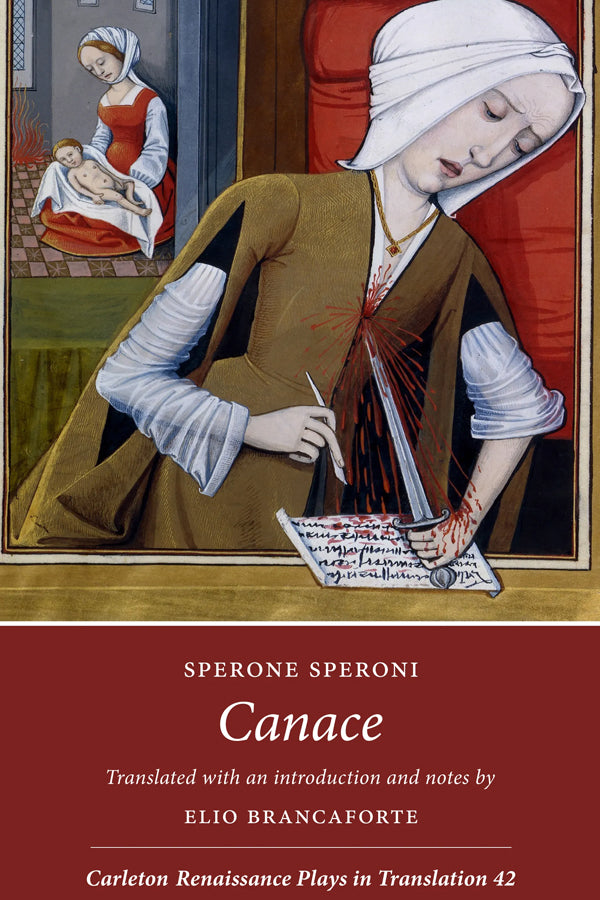Canace, by Sperone Speroni
Translated with an introduction and notes by Elio Brancaforte - CP42
Sperone Speroni was among the leading literary figures in Renaissance Italy, renowned as a theorist, essayist and author of dialogues (on love, discord, the dignity of women, and language), some of which led to problems with the Inquisition. His drama Canace (1542) gave rise to a polemic that resonated beyond his native country due to its controversial topic: incest. The ill-fated lovers (and siblings) Canace and Macareus are discovered by their father, Aeolus, king of the winds, who wreaks terrible vengeance on them—not realizing that Venus is the instigator of their love for each other. With a plot derived from Ovid and dramatic elements taken from Seneca, the tragedy of Canace raises questions about the problem of incest and its role in the debate regarding nature versus culture, a controversial topic that is still current.
Translated with an introduction and notes by Elio Brancaforte
Elio Brancaforte is Associate Professor and Chair in the Department of Germanic and Slavic Studies, Tulane University. A comparatist, his interests include translation, cultural exchange, early modern travel literature and drama, and the history of cartography. Currently he is working on a project that examines how Safavid Iran was represented in word and image in six different European travel accounts.
151 pp.
ISBN: 978-0-7727-2140-2 softcover
Published: 2013
Reviews
"Elio Brancaforte has produced an elegant and informative edition of the play. His translation, based on Cristina Roaf’s critical edition of 1982, is clear, readable, and accurate. He provides a brief biography of Speroni, an overview of Senecan tragedy in early modern Italy, a discussion of previous versions of the Canace story, and an analysis of the way the incestuous relations at its heart were portrayed in early modern culture. He details the controversy that arose over the play, outlining the major criticisms put forward as well as Speroni’s response to them. He also relates the play to Jacobean representations of incestuous relationships, such as in John Ford’s ‘Tis Pity She’s a Whore (1633). While somewhat historically tenuous, the comparison of the two plays will be useful to many of the translation’s readers, whose familiarity with English drama is likely to be greater than with Italian. In short, the volume is a worthy addition to the series of Carleton Renaissance Plays in Translation, and does the important work of making a significant text widely available to English language readers." — Ian Frederick Moulton, Arizona State University
Contents
Preliminary notes
Introduction
Bibliography
Prologue to Canace
Canace
Couldn't load pickup availability


